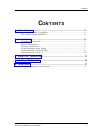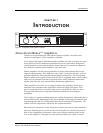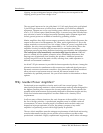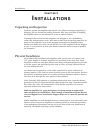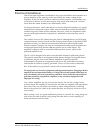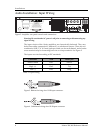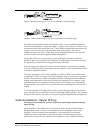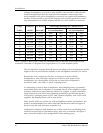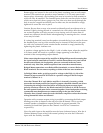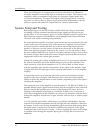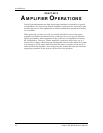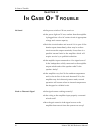
Installations
Matica 500/900 Reference Manual 9
Figure 5. Balanced wiring of a 1/4Ó (6.3 mm) three-wire phone plug.
Figure 6. Unbalanced wiring of a 1/4Ó (6.3 mm) three-wire phone plug
All input wiring should be done with shielded cable. To use an unbalanced source
with an Alesis amplifier, connect the High (+) signal wire as shown in Table 1 and
connect the shield wire to both the Low (Ð) and Audio Ground input connections. See
Figure 4 and 6. If a two-wire (tip and sleeve only) phone plug is used for an
unbalanced input, the sleeve of the plug will automatically connect the Low and
Audio Ground connections together inside the amplifier.
Long input cable runs, particularly in areas with high electrical interference,
should be done with symmetrical (ÒbalancedÓ) configuration, if possible, to lessen
the possibility of interference being picked up by the cables.
Since the input jack and barrier screws for each channel are connected in parallel,
only one of these should be used unless the same signal is to be connected in parallel
to another amplifier channel.
The input impedance of the Alesis amplifiers is 20 kW in balanced or unbalanced
configuration. Thus, the inputs of several amplifiers may be connected in parallel if
desired. The maximum number of amplifier channels will depend on the minimum
output load impedance of the device feeding the amplifiers. For example, if the
minimum output load impedance of the source device is 600ÊW, up to 30 amplifier
channels may be connected to it in parallel without overloading the source deviceÕs
output.
To use the amplifier in Bridged Mono mode, connect the input signal to Channel A
only and move the recessed slide switch to the Bridged Mono position. The Channel
B input will be inactive. See below for output wiring in Bridged Mono configuration.
Audio Installation: Output Wiring
Warning: Be sure that the AC power is off prior to connecting or disconnecting any
signal wiring.
Alesis amplifiers can reliably drive 2 W loads in Stereo mode and 4 W loads in
Bridged Mono mode. However, the impedance of a loudspeaker varies with
frequency, and its nominal rated impedance is not necessarily its minimum
impedance. Some loudspeakers carry both nominal and minimum impedance
specifications, and some are supplied with impedance curves. When connecting



